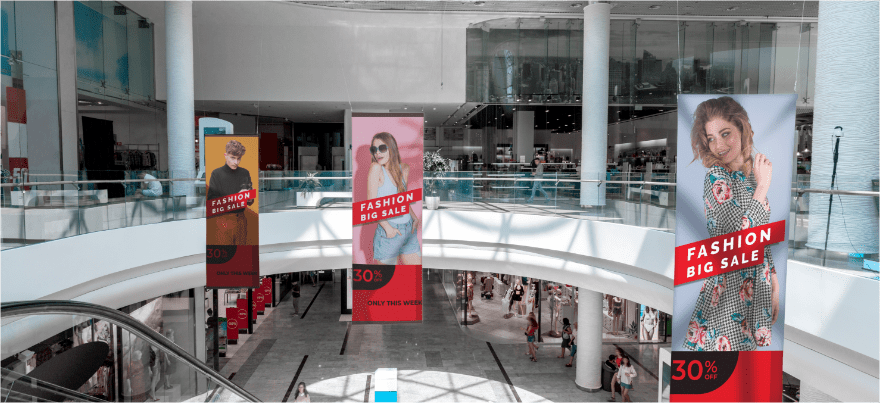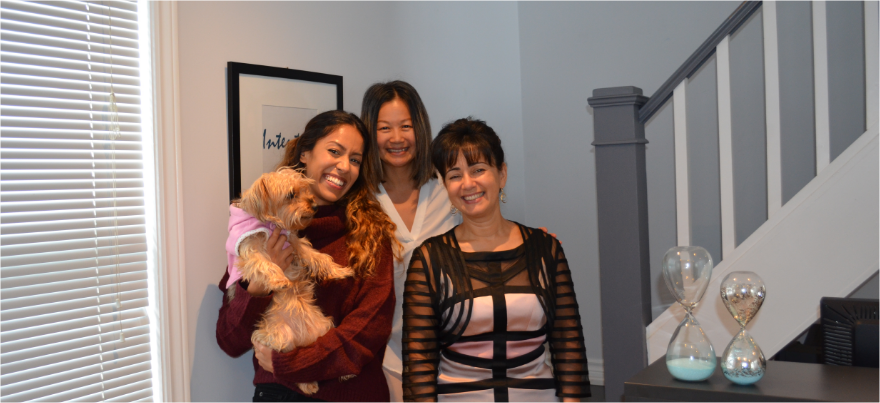Hey, we are Marlene and Thuy. We want to create guilt-free spending for as many people as possible. Our question is, will YOU be one of them?
How in control of your spending are you feeling right now? You swear that starting today, you will curb your spending. And you really mean it. Until….
You spot an online ad for this adorable pair of sandals that is just irresistible. And even though it’s winter time, you convince yourself that you need a new pair for your next trip. Later, you walk through the Costco isles to find a huge sale on a beautiful Christmas tree that comes with built-in lights. And you tell yourself this is perfect, since it’ll save you time. PLUS, it’s so pretty.

Without thinking, you whip out your credit card, make your purchases and you feel great. Until a month later, when your bill arrives or you notice that your closets are running out of space. Then you remember your promise to curb your spending and your internal dialogue starts to kick in. “Oh boy…not again, I’m not good with money, I’m always over spending, I can’t stick to a budget, I have no will power”. The feelings of guilt start to kick in and you start to feel hopeless about trying to ‘control’ your spending.
When you’re done beating yourself up, you make another promise that today, you will start curbing your spending. This time, you decide to create a stricter budget and reduce the limit on your credit card. Until…
A birthday celebration or Valentine’s Day arrives. And the cycle starts over again. Is this beginning to sound like a Yo-Yo diet when it comes to your spending?
BUT WAIT! The good news is – it’s not you. All the will power in the world may not be enough. Blame it on your brain.


We identified that our key triggers for spending were: social media, a need to please, and retailer tactics. One retailer tactic that has been working like a charm for us is Costco’s sampling, pricing, quality and return policy. We’re both foodies and love to eat and cook. So this is where Costco gets us! We caved into buying bulk quantities of everything…and even for food items that were not staples for us. And the worst part is we end up throwing out a lot of food because we can’t consume it all by expiration. This shopping behaviour led us to ‘waste’ our time, money and food. Oh, and then the feelings of guilt, frustration and disappointment kick in…
Can you relate to this? Or do you have a different experience with other spending triggers? If the answer is yes, then we’d like to share with you what’s been working for us.

We would love to hear your experience with spending triggers, and how you feel about it. And if you are ready to embrace guilt-free spending, let us know how we can support you. Share in the comments below.

Marlene and Thuy have spent over 20 years in the financial industry helping individuals with their investment, insurances, lending needs and are former Financial Planner. Since then, they’ve discovered the missing link to money freedom because as they said: “Making more money and being financially savvy won’t necessarily give you the life you want – because money goes deeper than the numbers.” When you work with Marlene and Thuy, they will guide you through the deeper inner work to remove what is keeping you from having the life that they want.

Marlene and Thuy’s best money tips, straight to your inbox.

| Cookie | Duration | Description |
|---|---|---|
| cookielawinfo-checkbox-analytics | 11 months | This cookie is set by GDPR Cookie Consent plugin. The cookie is used to store the user consent for the cookies in the category "Analytics". |
| cookielawinfo-checkbox-functional | 11 months | The cookie is set by GDPR cookie consent to record the user consent for the cookies in the category "Functional". |
| cookielawinfo-checkbox-necessary | 11 months | This cookie is set by GDPR Cookie Consent plugin. The cookies is used to store the user consent for the cookies in the category "Necessary". |
| cookielawinfo-checkbox-others | 11 months | This cookie is set by GDPR Cookie Consent plugin. The cookie is used to store the user consent for the cookies in the category "Other. |
| cookielawinfo-checkbox-performance | 11 months | This cookie is set by GDPR Cookie Consent plugin. The cookie is used to store the user consent for the cookies in the category "Performance". |
| viewed_cookie_policy | 11 months | The cookie is set by the GDPR Cookie Consent plugin and is used to store whether or not user has consented to the use of cookies. It does not store any personal data. |